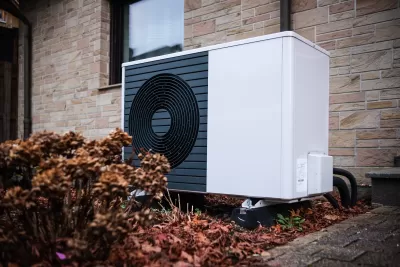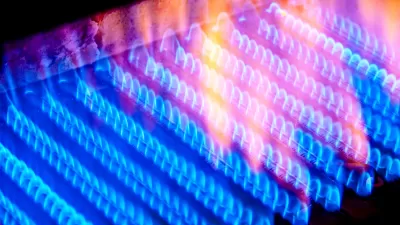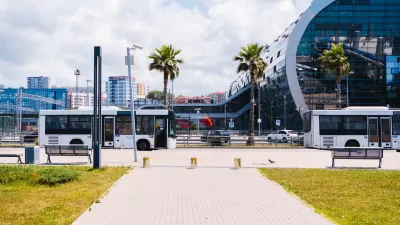A first-of-its-kind’ program will connect roughly 40 residential and commercial buildings to an underground geothermal network that will replace fossil fuel-powered furnaces.

A neighborhood in Framingham, Massachusetts will soon be connected to a networked geothermal system that replaces fossil fuel-burning furnaces with zero-emissions heat.
Adele Peters describes the project in an article on Fast Company. The first program of its kind run by a utility in the United States, it will serve “around 40 buildings, including low-income apartments, single-family homes, small businesses, and the neighborhood fire station.”
Capturing underground heat is an efficient way to heat buildings, and can be made even more efficient by a shared system. “In Framingham, Eversource will use a looping pipe system that reaches hundreds of feet below street level. In the winter, liquid flowing through the pipe is warmed by the underground temperature and then brings that energy up into heat pumps in buildings. In the summer, excess heat from the buildings is sent back underground, providing air-conditioning.”
According to Peters, “The pilot is expected to cost $14.7 million, though costs will drop as utilities gain more experience.” Eversource, the utility, is paying setup costs for residents who agreed to be part of the two-year pilot program. “The approach could provide a smoother path to decarbonization than relying on building owners to make changes individually, at least in urban areas where there’s enough density to support this type of network.”
FULL STORY: In this Massachusetts neighborhood, nearly every home is switching to geothermal energy

Alabama: Trump Terminates Settlements for Black Communities Harmed By Raw Sewage
Trump deemed the landmark civil rights agreement “illegal DEI and environmental justice policy.”

Planetizen Federal Action Tracker
A weekly monitor of how Trump’s orders and actions are impacting planners and planning in America.

The 120 Year Old Tiny Home Villages That Sheltered San Francisco’s Earthquake Refugees
More than a century ago, San Francisco mobilized to house thousands of residents displaced by the 1906 earthquake. Could their strategy offer a model for the present?

In Both Crashes and Crime, Public Transportation is Far Safer than Driving
Contrary to popular assumptions, public transportation has far lower crash and crime rates than automobile travel. For safer communities, improve and encourage transit travel.

Report: Zoning Reforms Should Complement Nashville’s Ambitious Transit Plan
Without reform, restrictive zoning codes will limit the impact of the city’s planned transit expansion and could exclude some of the residents who depend on transit the most.

Judge Orders Release of Frozen IRA, IIJA Funding
The decision is a victory for environmental groups who charged that freezing funds for critical infrastructure and disaster response programs caused “real and irreparable harm” to communities.
Urban Design for Planners 1: Software Tools
This six-course series explores essential urban design concepts using open source software and equips planners with the tools they need to participate fully in the urban design process.
Planning for Universal Design
Learn the tools for implementing Universal Design in planning regulations.
Clanton & Associates, Inc.
Jessamine County Fiscal Court
Institute for Housing and Urban Development Studies (IHS)
City of Grandview
Harvard GSD Executive Education
Toledo-Lucas County Plan Commissions
Salt Lake City
NYU Wagner Graduate School of Public Service





























